Review: 'Zero Day'
Pacing issues aside, this Robert De Nero-led political thriller series never loses its grip.
There is a quote in Netflix’s new political thriller miniseries, Zero Day, that goes to the heart of the sometimes complicated matter. It boils down what this very US-centric show is really about, and presents it in a way that speaks not only to the broader story but also to the often tense and fragmented world we live in today.
In the scene where the quote is taken from, former president George Mullen (played by none other than the legendary Robert De Niro) has been placed in charge of a government agency with unlimited power to take into custody whoever they like in order to stop a threat to the nation.
One of those he has in custody and interrogates at one point in the story is the tech billionaire Monica Kidder (played by Gaby Hoffmann), who is clearly meant to reflect real-world characters like Elon Musk and Mark Zuckerberg. And as she is released, George Mullen confronts her on a previous point she made about the difference between freedom and liberty:
Freedom is what allows people like you to do whatever you want.
Liberty is what protects the rest of us from people like you.
-George Mullen (Robert De Nero), Zero Day
George Mullen thought life would be quiet after serving a single term as president of the United States. He was popular, especially in New York, and many questioned his state of mind when he unexpectedly chose not to seek re-election—at least, that’s how it seemed to the public.
Privately, though, he carried his own burdens. The tragic loss of his teenage son to a drug overdose weighed heavily on him, and his daughter, Alexandra Mullen (played by Lizzy Caplan), now a politician in her own right, had pushed him away.
But George Mullen is older now—perhaps wiser—and knowing he’s in the twilight of his life, he sets out to write his memoirs. By his side is his ever-loving wife, soulmate, and rational moral compass, Sheila Mullen (played by Joan Allen). Together, they have endured tragedy. And while it hasn’t necessarily made them stronger, perhaps it has made them more resilient.
Now that George Mullen has retired from politics to his spacious home outside the city—fit for an ex-president—each day feels much like the last. Despite protests from those who wanted him to run again, he has settled into a routine. He wakes up, goes for a run with his Golden Retriever, checks on the bird feeder (which, for some reason, always seems to be near empty), then takes a swim in his oversized pool before attempting to work on his memoirs.
There are visitors, of course—an occasional journalist or author. This morning, he’s scheduled for an interview with a journalist who asks pointed questions about his political career and private life. But no worries. He’s used to it.
After the journalist leaves, he doesn’t give it another thought.
Then all hell breaks loose.
A massive, coordinated cyberattack rocks the United States. All at once, every computer, mobile phone, and tablet—regardless of operating system—begins to glitch before shutting down for exactly one minute, displaying only the ominous warning: "This will happen again." The result? Mass casualties. With the nation’s infrastructure crippled, chaos erupts. 3,400 people are dead in a nationwide terror attack.
After traveling to New York City to witness the devastation firsthand, George Mullen is soon called back to action by the current president, Evelyn Mitchell (played by Angela Bassett). She asks him to form a special task force, the Zero Day Commission, to track down those responsible and prevent future attacks. At his disposal? Unlimited powers of arrest, search, and seizure.
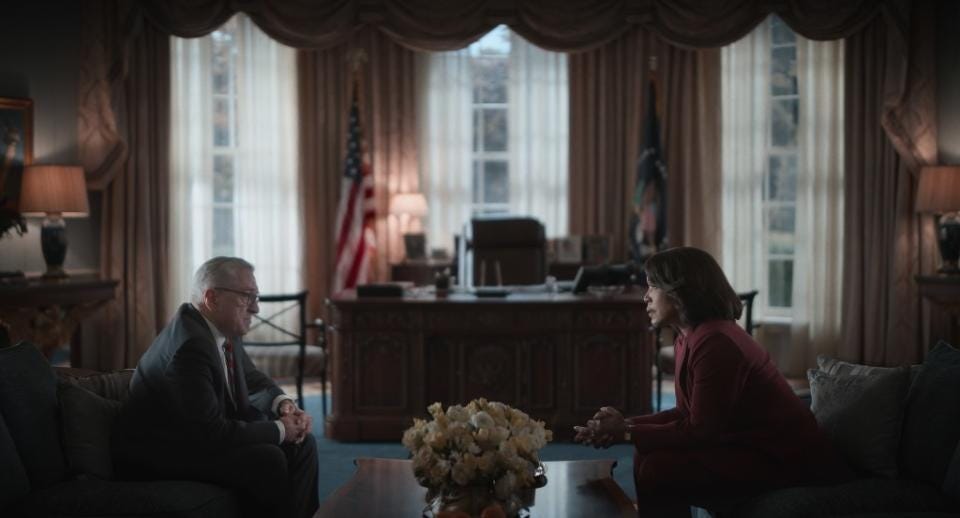
To build his team, Mullen brings together a group of specialists, including his former colleague Roger Carlson (played by Jesse Plemons), a man he sees as something of a son to him.
But soon, strange things start happening. Mullen begins experiencing hallucinations—hearing odd noises and music from an unknown source, seeing people who aren’t there. Is he losing his mind? And what about the ethics of the Zero Day Commission itself? Where is the line between freedom and liberty really drawn? As George Mullen pulls on the threads he finds, how deep does the conspiracy—real or imagined—go?
Zero Day is a six-episode political thriller directed by Lesli Linka Glatter, known for titles such as Twin Peaks, Mad Men, Homeland, and Gilmore Girls. The show was created and written by Noah Oppenheim, Eric Newman, and Michael Schmidt, with Roberto Patino, Eli Attie, and Dee Johnson as additional writers.
While not overtly partisan, Zero Day is highly critical of the complexities and obscurities of the U.S. political system, layering a political conspiracy thriller on top of an otherwise realistic depiction of governance. However, the show is squarely centered on Robert De Niro’s character and his unraveling of these conspiracies, alongside his personal struggles—both from past losses and his current mental state.
Zero Day also takes liberal jabs at real-world politics, media, and the U.S. zeitgeist—from the way we consume fast-paced news (and how easily it can be spun and manipulated by well-placed calls from those with influence) to how certain tech billionaires wield their influence and capital to shape policies for their own gain.
Needless to say, with Robert De Niro in the lead role, there’s plenty of excellent acting on display. The veteran actor—who has appeared in over 100 titles—shows no signs of slowing down. A well-known and outspoken critic of Trump, MAGA, and the Republican Party, De Niro seems to be having a great time in this role. And while the show never explicitly states which party George Mullen once belonged to, it’s not hard to read between the lines.
Besides De Niro, other actors of particular note here are Jesse Plemons as Roger Carlson, who becomes a part of the Zero Day Commission but has his own skeletons in the closet, and Joan Allen as George Mullen’s wife, Sheila. Both actors pull the narrative—and the series’ genre—in different directions. Where Plemons’ character gradually draws George Mullen into the conspiracy, Joan Allen’s Sheila serves as the much-needed grounding force for the former president.
That said, Zero Day has some of the expected cliché characters, caricatures, and mustache-twirling bad guys. But it’s nowhere near as egregious as what you’ll find in many other U.S.-made political thrillers. Then again, considering the current state of global politics, the real world isn’t exactly short on over-the-top villains either. In fact, compared to some of today’s headline-makers, the characters in Zero Day might come across as downright reasonable.
The story of Zero Day takes place mainly in New York City—where the city almost becomes a character in itself—and Washington, D.C., bearing similarities to series such as Homeland and The Night Agent. Shot on location in New York, the series doesn’t have much action to speak of, but there are plenty of tense scenes, even a shootout or two.
That said, there are some pacing issues here and there, especially around the middle of the series, where the show seemed to slightly lose grip of its multiple storylines and plot threads. It should be noted that these episodes were not written by the show’s creators, which might or might not have something to do with it. To me, it seemed to slow down, becoming a bit meandering at times. But it gets back on track by the end of the series, and it's definitely worth sticking with until the final episode.
Zero Day is, at its core, a tense, six-part thriller series that aims to criticize certain aspects of the modern media and political landscape in the U.S. today. Does it succeed? I think so, especially from my perspective as a European. But regardless, it’s still good entertainment.

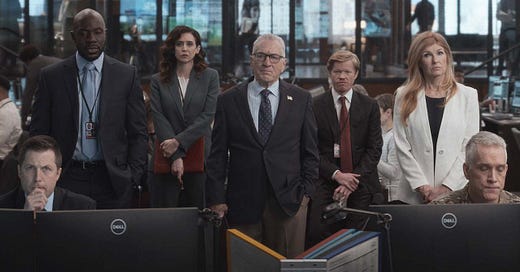



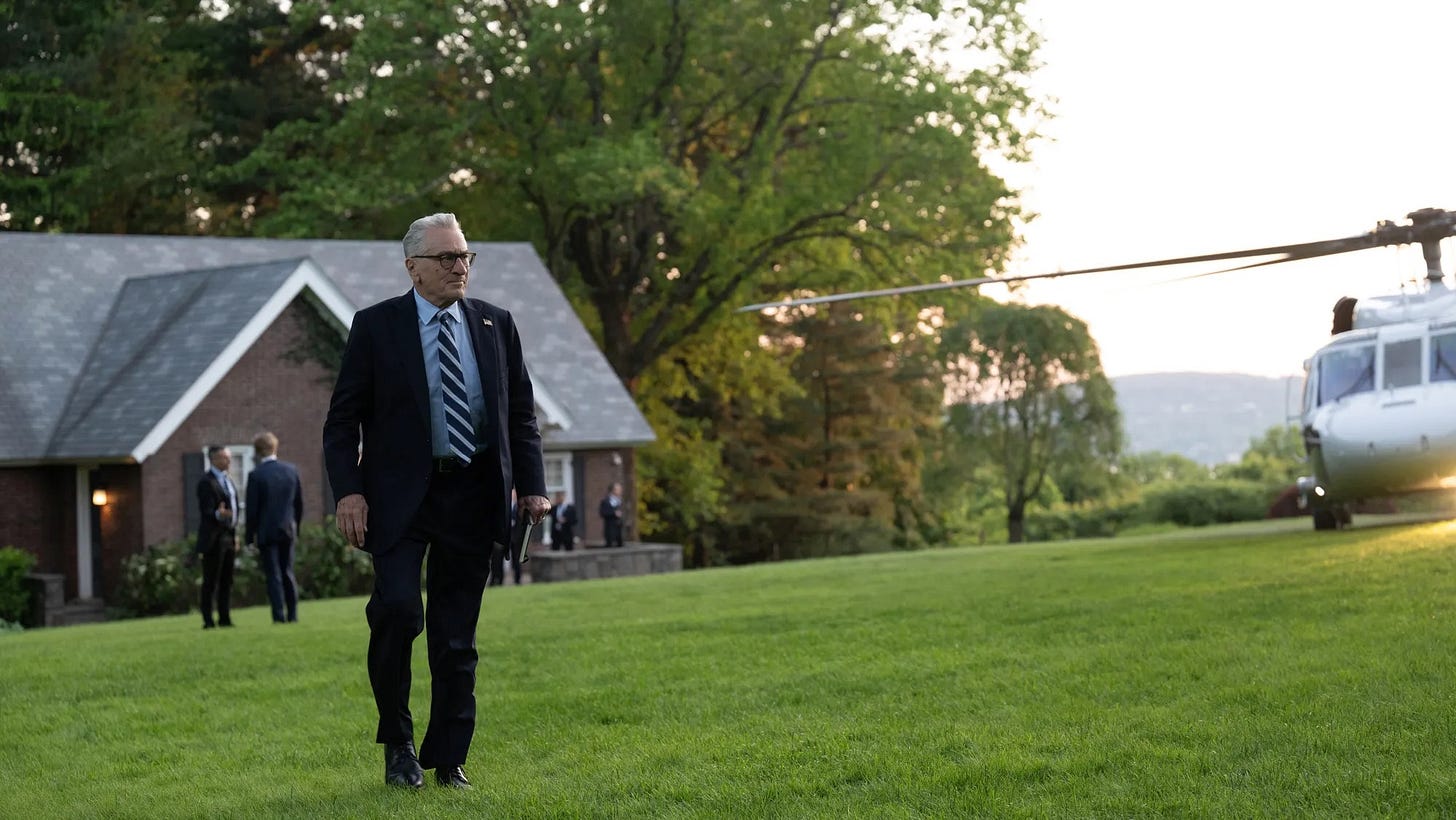
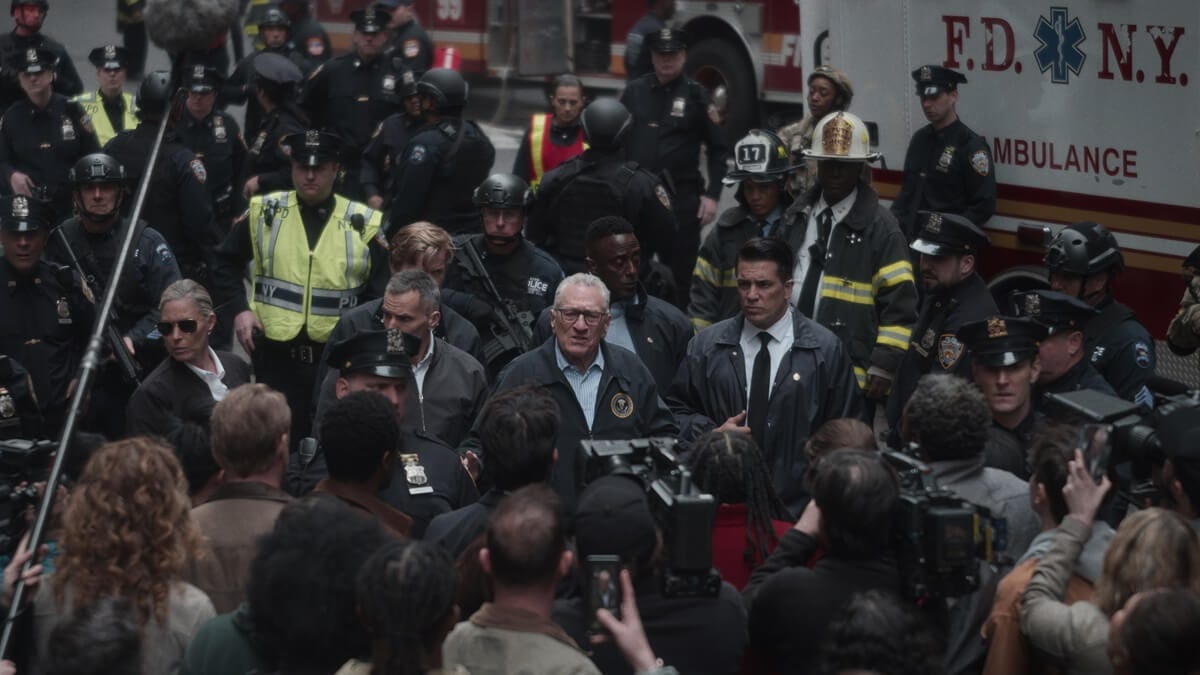
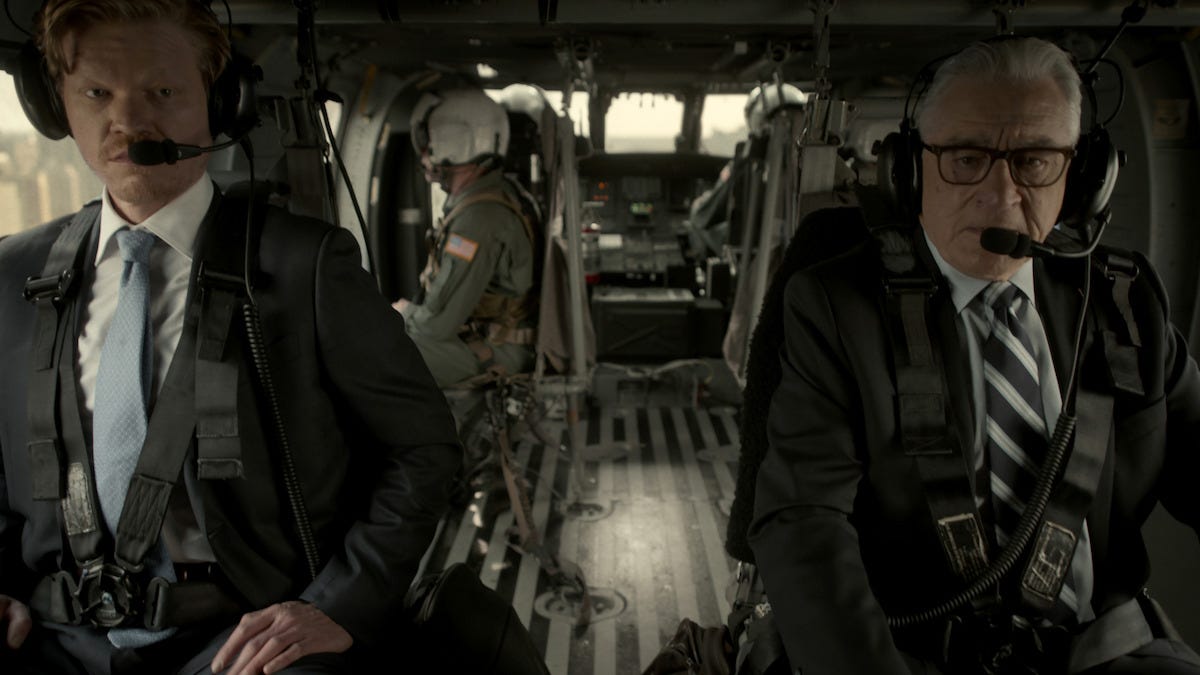
Thanks Eirik. I watched the series and enjoyed it.